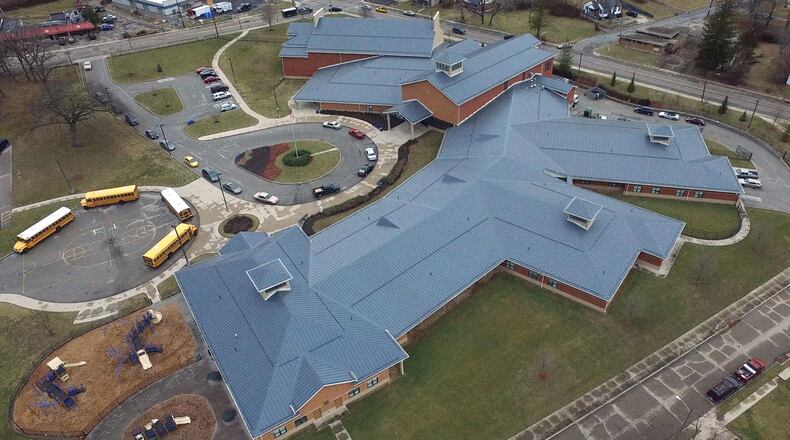BIG PICTURE: Dayton schools to spend $60M on core problems
“In my life, I’ve never seen a forecast with those kind of dollars in it for a cash-funded capital project,” said John Payne, partner with Bradley Payne municipal advisers, who has worked with Dayton in past years. “I don’t know if I’d cash-fund all of that. … It has implications on your budget, your planning, and really it has implications on when you need to really get down to brass tacks about when you go to the ballot (for a tax levy).”
According to Dayton’s May 28 five-year forecast, the district had about a $100 million unencumbered general fund balance, or roughly 39% of a year’s expenses. Many larger Ohio districts carry between 15 and 30% of a year’s expenses – including Akron, Cincinnati, Toledo and Columbus, as well as Beavercreek, Kettering and Miamisburg locally.
The district decided to spend some of its surplus. The school board recently approved in principle a plan to spend $17 million each of the next three years to address what it called deferred maintenance issues with 26 school buildings that were constructed from 2004-2012.
RELATED: Details on planned school facilities spending
Those investments would come at the same time that Dayton is significantly increasing teacher pay, filling personnel spots that had been left vacant and paying more than $3 million per year to bus high school students.
The adjusted five-year financial forecast from Treasurer Hiwot Abraha, accounting for those investments, shows Dayton would go below its mandated budget reserve amount very early in 2021-22, and would completely run out of money later that school year without a levy.
Mohamed al-Hamdani told his fellow board members June 29 that he invited Payne to address the board specifically about whether it made more sense to finance some of the longer-term capital costs.
“I look at that forecast and say you better be on the ballot (for a levy) in 2021, if not 2020,” Payne said. “If you need flexibility, you take some of this capital out (of cash spending) and borrow for it. In this scenario, that gets you another year. … Rates are at historic lows. They’re almost giving money away.”
RELATED: Board approves high school busing; details in limbo
Board member John McManus, who was the only vote against the school board spending plan May 28, called it “a classic example of ready, fire, aim,” with board members committing to spend millions of dollars, then having to scramble to figure out if they can afford it.
Al-Hamdani said the lack of maintenance work done on schools in the past decade had put the district “between a rock and a hard place.”
“Yes, it sucks for us because we to have to make this tough decision, but we have to figure out a way. … Maybe a year from now we come back and we’ve spent $10 million instead of $17 million,” al-Hamdani said. “The discussion I was trying to have today is not about the levy, and I know people want to talk about levies. I want to ask, rather than spend cash, which we have right now … whether it’s more financially prudent to borrow money for the long-term pieces.”
McManus acknowledged he wants to have that conversation, too, but asked why the order wasn’t reversed.
RELATED: DPS to demolish two former schools
“Just a month ago, it was, approve this $17 million, please approve this $17 million. And it was approved,” McManus said, repeating that he didn’t vote for it. “We put the money aside, now we’re trying to figure out how in the world we’re going to pay for it. This would have been a conversation to have before the board voted.”
Al-Hamdani said the school district’s finance committee will discuss options this month and will work on the issue with financial advisers before making a recommendation to the school board.
“I think we have to be prudent about the dollars we spend,” board member Karen Wick-Gagnet said. “I think we have to be always looking forward. The needs of our students and community are ever-changing. If we have to go out for a levy in a couple years, we will do it. If it doesn’t pass, we’ll make cuts and plans at that time just like many other school districts do. Right now we have to make the best decisions we can to guide the board and the institution.”
RELATED: Three school board incumbents won’t run for re-election
About the Author

